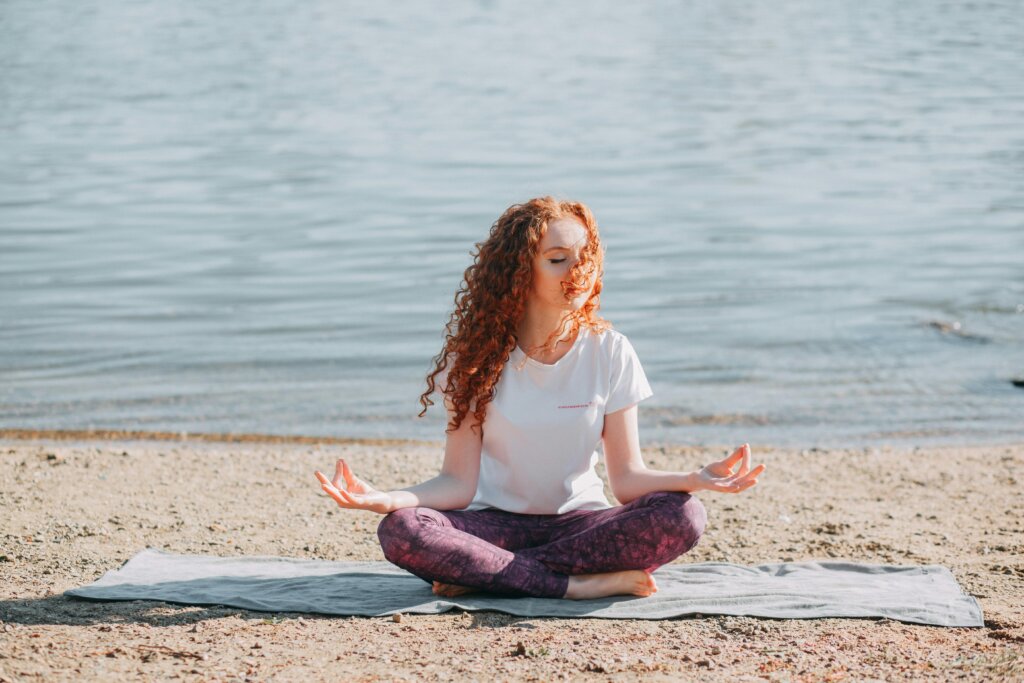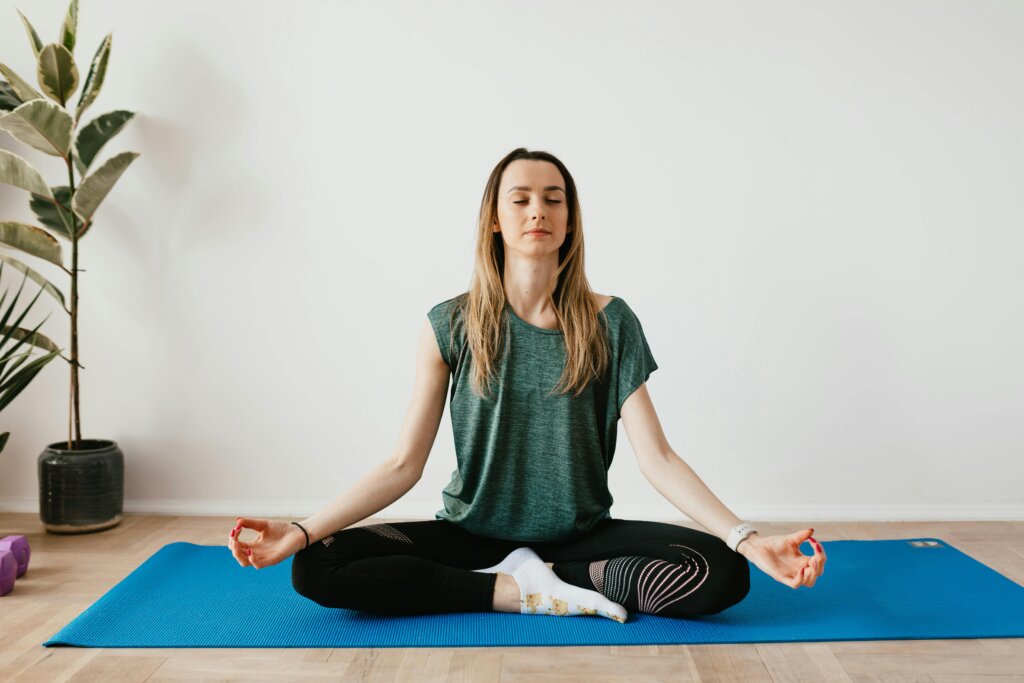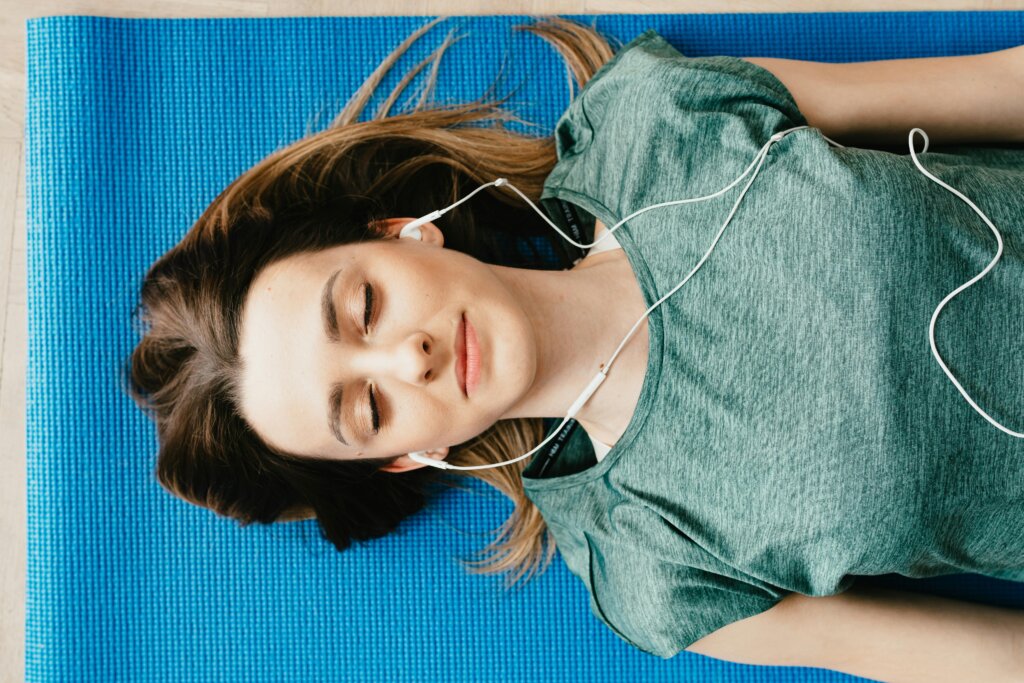How does self care reduce stress- Nowadays it has become a part of life, be it office work, household chores, or personal relationships. But this stress, if not controlled, can spoil both mental and physical health.
But don’t worry. We are going to tell you about a secret weapon that will help in reducing your stress. And that is self-care. The simple answer is that self-care is about giving yourself priority, taking care of your well-being.
Self-care means taking care of yourself, taking care of your mind, body, and soul. It is also very important to handle stress, because everyone has some tension in life. But do you know that there is a deep relationship between self-care and reducing stress?
Yes, doing self-care reduces our stress levels. When we take care of ourselves, our mind and body relax, and stress reduces. That is why it is very important to give importance to self-care in stress management.
In this blog, we’ll explore how self-care affects stress and how it can make us feel better and more relaxed. So let us now see how self-care can make our lives better.
How does self care reduce stress

Self-care is a very important concept in our everyday life. But do you really understand what self-care is? Self-care means taking care of yourself, taking care of your mind, body, and soul.
Making self-care an important part of your life means making yourself a priority. In our busy schedules, we often forget about ourselves. But it is important to give priority to self-care because it is very important for our overall well-being.
When we take care of ourselves, we keep ourselves mentally, emotionally, and physically strong and healthy.
But some people have some misconceptions about self-care. They think self-care is only for luxuries like a spa day or vacation. But this is absolutely wrong. Self-care should not be considered a luxury, but a necessity.
This is not any kind of self-indulgence, rather it is a form of self-love. And then, some people think that making time for self-care is difficult, but in reality, even small steps can make a big difference.
Similarly, there are some misconceptions about self-care, but the truth is that self-care is very important for us. We can only make ourselves better for others when we take care of ourselves first. So, now let us see how we can make self-care an integral part of our life and get rid of stress. (how does self care reduce stress)
The Concept of Self-Care

Self-care means taking care of ourselves, like we water our favorite plant. It can be any activity that brings you happiness and relaxation. Such as, taking time for yourself, enjoying your favorite activities, or simply taking the time to sit back and think and have fun.
It is very important to give priority to self-care, When we take time out for ourselves, we feel strong and fit. And, when we keep ourselves happy, our relationships also become better. After all, it’s important to spread happy vibes, right?
But some people have some misconceptions about self-care. Some think that self-care is selfish. But really, self-care is loving yourself, and it’s important for your mental and physical health. Then some people think that doing self-care requires a lot of time. But by taking out a little time we can improve our happiness and health.
So now you must have understood how important self-care is, right? So come on, let us all together take care of ourselves even more. (how does self care reduce stress)
The Relationship Between Self-Care and Stress

Doing self-care practices reduces our stress levels. When we take care of ourselves, we give our mind and body a chance to relax and rejuvenate. Such as, meditating, exercising, or simply enjoying your favorite hobbies. All these activities reduce our cortisol levels, which is a stress hormone.
Scientists have also verified that self-care reduces our stress levels. Studies have proven that regular self-care practices like meditation, yoga, and deep breathing techniques trigger our brain’s “relaxation response.” It reduces our stress and makes us calm and focused.
Now come our stress management superheroes – self-care techniques. This is not rocket science, it is a simple thing.
For example, if you are feeling stressed, you can close yourself in your room for a few minutes, put on headphones and listen to your favorite music. Or, go for a short walk or talk with a friend. There is great happiness in these small activities, and they keep us away from stress.
So, now you must have understood how strong the connection is between self-care and stress reduction. Let us start our self-care journey and a stress-free life from today itself.(how does self care reduce stress)
You may like to read our article on- How Does Self-Care Improve Physical Health
Physical Self-Care

Physical well-being is very important to reduce our stress. When we keep our body fit and active, our stress levels also automatically reduce. Maintaining a healthy lifestyle strengthens our immune system, so that we can reduce the negative effects of stress.
Exercise plays a big role in stress relief. When we exercise, our body produces endorphins, which are natural stress busters. And also, exercising also uplifts our mood and we feel away from stress. Be it jogging, dancing or going to the gym, exercise is important to reduce stress.
What we eat can also affect our stress levels. It is very important to maintain a balanced and nutritious diet. Staying away from junk food and processed foods, and including more fruits, vegetables, whole grains, and lean proteins. All these things provide essential nutrients to our body which help us cope better with stress.
So, now you must have understood why physical self-care is important for stress reduction. (how does self care reduce stress)
Emotional Self-Care

Our emotions are an important part of our life. But sometimes we ignore our emotions or suppress them. Therefore, it is important that we recognize our emotions and express them appropriately. When we understand our emotions, we can handle them better and improve our mental health.
There are some techniques for emotional self-care which help us in managing our emotions. For example, journaling – writing down your thoughts daily is a good habit that helps us understand our emotions.
And then, if we are having trouble with anything, we can also take help of therapy or counseling. By talking to a therapist or counselor, we can share our feelings and get their support.
Resilience means the ability to handle tough situations with your emotions. And we can develop this capacity through our emotional self-care practices.
Such as, meditating, doing deep breathing exercises, or using affirmations. With all these techniques, we keep our mind working and focused, and can remain strong even in tough times.
So, now you must have understood how important emotional self-care is for our mental well-being. Let’s start the journey of identifying our emotions and handling them properly, and make our life even better.(how does self care reduce stress)
Mental Self-Care

Our mental health plays a big role in stress management. When our mind is strong and healthy, we are better able to handle stress. Therefore, it is important for us to take care of our mental health. If we ignore our mind, stress levels increase and our overall well-being is affected.
Mindfulness and meditation are powerful tools for our mental self-care. When we are mindful, we remain focused on the present moment and observe our thoughts. And by doing meditation we make our mind calm and peaceful. This reduces our stress levels and improves our mental clarity.
Cognitive-behavioral strategies are another effective way to reduce stress. In this we analyze our thoughts and behaviors and try to change negative patterns.
For example, if we are stressed by a situation, we practice converting our negative thoughts into positive thoughts. With this we control our stress levels and increase our mental resilience.
So, now you must have understood how important mental self-care is for our stress management. Let’s start from today itself by taking care of our mental health, and make our mind even stronger and resilient.(how does self care reduce stress)
Scleroderma Self-Care: Improve Your Quality of Life
Social Self-Care
Supportive relationships are an important part of our life. When we spend quality time with our close friends or family members, our stress reduces and we remain happy.
Therefore, it is important for us to nurture our relationships. Staying connected with each other, being empathetic and supportive, and appreciating our loved ones are all important for our social well-being.
Sometimes we have to set boundaries to protect our mental well-being. We need some personal space and time for ourselves, in which we can sort out our thoughts and relax our mind. Therefore, it is important for us to understand our limits and learn to say no when necessary.
It is very important to maintain a balance in life. If we are always busy and involved in socialization, it affects our mental health.
Therefore, we should take out some time in our schedule to appreciate solitude. By spending some time with ourselves, we refresh and rejuvenate our mind, which is also important for our social well-being.
So, now you must have understood how social self-care improves our overall well-being. Let’s start from today itself by nurturing our relationships and setting our boundaries, and make our life more balanced and happy. (how does self care reduce stress)
Environmental Self-Care

The environment of our surroundings affects our mood and mental well-being. A calm and peaceful physical environment makes us feel relaxed and calm.
Therefore, we should design our home or work environments in such a way that they give us comfort and happiness. Such as, using soothing colors, having soft lighting, and setting up comfortable furniture.
Cluttered and messy surroundings increase our stress levels. Therefore, it is very important for us to declutter and organize our surroundings.
When we keep our home or work area clean and organized, our mind also remains clear and focused. And this also reduces our stress levels and we are able to handle our tasks better.
Connecting with nature is a very powerful way of our mental rejuvenation. When we spend time in nature, our mind feels relaxed and refreshed.
A short walk in the park or a picnic in the jungle gives us a lot of positivity and energy. Therefore, we should take out some time in our busy schedules and connect with nature.
So, now you must have understood how environmental self-care improves our mental well-being. Let us start the work of making our surroundings soothing and organized from today itself, and by spending a little time with nature, and make our life even more peaceful and happy. (how does self care reduce stress)
Spiritual Self-Care

Spirituality is an important aspect in our stress management. When we walk on our spiritual journey, we discover our inner peace and balance. Spirituality provides us with a sense of purpose and connection, which reduces our stress levels. Therefore, it is important for us to explore our spiritual side.
There are some practices for spiritual self-care which help us in maintaining our inner peace. For example, meditating – it makes our mind calm and focused and makes us feel a deeper connection. Again, prayer is also a powerful tool of spiritual self-care. By praying we express our concerns and ask for guidance.
Finding a sense of meaning and purpose in life is also an important part of spiritual self-care. When we get some purpose or goal in our life, then our stress reduces and we are able to handle our challenges better. Therefore, we should explore our interests and passions and find a sense of meaning and fulfillment in our lives.
So, now you must have understood how spiritual self-care reduces our stress levels and provides us with a sense of peace and purpose. Let us start from today itself by exploring our spiritual journey, and make our life even more meaningful and blissful. (how does self care reduce stress)
Self-Care Habits for Daily Life
It is important to include self-care in our daily routines. If we do not prioritize self-care by taking out some time in our busy schedules, our stress levels increase and we neglect ourselves.
Therefore, we should take small breaks in our day in which we can relax our mind and body. Be it a few minutes of meditation, or listening to your favorite music, or just taking a short walk.
While setting self-care goals, it is important that we choose realistic and achievable goals. If we set unrealistic or too big goals for ourselves, we get frustrated and then ignore self-care.
Therefore, we should set goals according to our capabilities and resources. And then gradually progressing, we can improve our self-care habits.
Sometimes some obstacles come in our daily life which prevent us from making our self-care practices consistent. But we must overcome these obstacles and continue our self-care journey.
If we feel that we do not have time or we are facing some distractions, then we should reset our priorities. Make your self-care a top priority, and then see how you can make your life more balanced and happy. (how does self care reduce stress)
Self-Care Strategies for Different Life Stages

Students and young adults have many challenges in their lives, such as studies, career decisions, and social pressures. Therefore, self-care is very important for them.
Students should take regular breaks between studies, and pursue their hobbies. And young adults should also take care of their mental and physical well-being.
Exercising, eating healthy foods, and pursuing your interests are all self-care strategies that help students and young adults manage stress.
Parents and caregivers also have many responsibilities in life, such as taking care of their children and spending time with them. But you should not forget yourself either.
Parents and caregivers should also take out some time for themselves to pursue their interests or do simple relaxation. It is also very important to have a support system in which they can share their concerns.
This reduces their stress and they are able to handle their responsibilities better.
Self-care has great importance in the lives of older adults and retirees also. At this age it is very important to take care of your physical and mental health. Regular exercise and healthy diet should be included in your routine.
And then, it is important to maintain social connections too. Spending time with friends, pursuing hobbies, and trying new activities all boost their mental well-being and keep them active and engaged.
Self-care has its own importance in every life stage. Let us start from today itself to prioritize self-care according to our life stage, and make our life more balanced and happy. (how does self care reduce stress)
Self-Care for Professionals

It is very important to have self-care in the workplace. When we are under pressure and deadlines of our job, our stress levels increase and our productivity also decreases.
That’s why we should prioritize self-care in our workplace. If we do not take care of our physical and mental health, then we are not able to perform well in our work.
There are some strategies that help us to manage work-related stress. First of all, we should organize our tasks and set realistic goals.
If we need help in any task, we should not hesitate in asking for it. And then, it is also important to take regular breaks. Taking short breaks refreshes our mind and we are able to do our work in a more focused manner.
It is important to maintain a healthy work-life balance. If we become so busy in our work that we ignore our personal life, then our mental and physical health gets affected.
Therefore, we should maintain a balance between our work and personal life. Pursuing your personal interests, spending quality time with family and friends, and enjoying your hobbies – all of these are important for our mental well-being.
So, now you must have understood how important self-care is for professionals. Let’s start prioritizing self-care in our workplace from today itself and make our life more balanced and successful. (how does self care reduce stress)
Beyond Stress: How Self Care Improves Mental Health
Overcoming Resistance to Self-Care
Many times we come across some common barriers while practicing self-care. For example, lack of time – we feel that we do not have time for self-care. Again, guilt – some people feel that taking time for themselves is selfish.
And then, lack of motivation – sometimes we don’t get the motivation to practice self-care. All these things create resistance in our self-care.
Guilt and self-doubt regarding self-care is a common problem. But we should understand that doing self-care is not selfish.
When we take care of ourselves, we recharge and refresh ourselves, so that we can handle our responsibilities in a better way. Therefore, we should acknowledge guilt and self-doubt and try to overcome it.
There are some tips to help us overcome resistance and prioritize self-care. First of all, we should clear our priorities. Your mental and physical health should be made top priority.
Then, we must make our self-care goals realistic and achievable. And then, we must turn to our support system. By talking to our friends or family members, we can share our concerns and get their support. (how does self care reduce stress)
Self-Care Resources and Tools
Nowadays there are many apps and online resources available which help us in self-care. For example, for meditation and relaxation, apps like Headspace or Calm, in which guided meditation sessions are available.
Then, there are also online therapy platforms like BetterHelp or Talkspace for mental well-being and stress management. By using these apps and online resources we can support our self-care journey.
Many books and podcasts are also available which help us in learning about self-care and stress management. For example, books like “The Gifts of Imperfection” by Brené Brown or “The Subtle Art of Not Giving a F*ck” by Mark Manson.
And then there are podcasts like “The Happiness Lab” or “The Mindful Kind” that give us insightful discussions on mental well-being topics. With these books and podcasts we can increase our self-awareness and improve our self-care practices.
Community support and self-care networks also support us in our self-care journey. In online forums like Reddit communities or Facebook groups, we can share our experiences and get tips and advice from others.
And then there are also local support groups where we can meet people from our area and discuss our concerns. This way we get a supportive and understanding community that helps us reach our self-care goals.
So, now you must have understood how important the available resources and tools are for self-care. Let’s start today by using these resources to further enrich our self-care journey. (how does self care reduce stress)
Self-Care and Professional Help

Sometimes we are not able to handle our mental or physical health issues despite our self-care efforts. Therefore, it is important that we understand when we need professional support.
If we can’t find interest in our daily activities, or are having problems in our relationships, or can’t handle our anxiety or depression, we should seek professional help.
It is very important to integrate self-care and therapy or counseling together. When we seek professional help, we get a platform to express our concerns and help ourselves understand our mental health issues.
Therapists or counselors teach us self-care techniques and coping strategies that we can implement in our daily lives to improve our well-being.
Sometimes we also need treatment for some medical condition. And self-care practices play an important role in this too. For example, if we are undergoing treatment for any chronic illness or physical condition, then we should also monitor our diet and exercise.
And then, if we are using any medication, we should also incorporate self-care practices with it to improve our recovery process. (how does self care reduce stress)
Monitoring Progress and Adjusting Self-Care Practices
Self-awareness is a crucial aspect in our self-care journey. When we understand our thoughts, feelings, and behaviors, we can better identify our self-care needs.
Through self-awareness we can identify our stress triggers and improve our coping mechanisms. That’s why it’s so important to observe and reflect on your inner self to optimize your self-care practices.
It is also very important to track your stress levels and self-care activities. We can maintain a journal in our daily routines in which we can note down our daily stressors and the self-care activities we do.
This lets us know which activities make us feel relaxed and calm and which activities put us in stress. And then we can adjust our self-care routines based on this tracking.
Every person’s self-care journey is unique and every person’s individual needs are different. That’s why we should customize our self-care routines based on our personal needs. If someone is getting relaxation from a particular activity, then he should continue using it.
But if any activity is causing discomfort or stress to someone, then it should be modified or replaced. Through self-awareness we can understand our individual needs and adjust our self-care practices accordingly. (how does self care reduce stress)
Self-Care as a Lifelong Journey

Self-care is a journey that never ends. We must understand that self-care is an ongoing process, which helps us to always take care of our mental, physical, and emotional well-being. That is why, we should consider self-care as an integral part of our lives, which we prioritize every day.
Our circumstances and challenges in life always keep changing. Therefore, it is important for us to adjust our self-care practices according to changing circumstances. The self-care practices that we found effective earlier may not be effective today. That’s why we should embrace self-care practices that evolve with the changes in our lives.
Maintaining consistent self-care habits helps us build resilience. When we follow our regular self-care routines, we strengthen our mental and emotional strength.
This reduces our stress levels and we are able to handle our challenges better. And when we are resilient, we remain strong even in the ups and downs of our life. (how does self care reduce stress)
Real-Life Success Stories

Many people have reduced stress by incorporating self-care practices into their lives. A man says that he started daily meditation and it reduced his stress level a lot.
Another woman says that when she started pursuing her hobbies, her stress level reduced significantly. These personal anecdotes help us understand how important self-care is for our mental and emotional well-being.
Listening to the stories of some people gives us inspiration that we too can overcome our stress and prioritize self-care. An entrepreneur says that when his work stress started overwhelming him, he took some time out from his schedule and took up yoga and meditation.
And this also increased their productivity and they were able to handle their work more effectively. These stories teach us how we can integrate self-care in our lives and overcome our challenges.
Many people have shared their experiences which highlight the effectiveness of self-care strategies. One person says that when he adopted regular exercise and healthy eating, his stress level reduced and he started enjoying his life more.
Another person says that when he strengthened his social connections, his loneliness and stress levels decreased. These testimonials show us how effective self-care strategies are and how they help us improve our well-being.
So friends, we get inspiration from these real-life success stories that we too can make our life more happy and healthy by reducing our stress and prioritizing self-care. (how does self care reduce stress)
Facts And Stats
Here are some facts and stats on how does self care reduce stress for the US population:
- High Stress Prevalence: The American Psychological Association (APA) reports that in 2019, 72% of adults in the US experience moderate to high stress levels [Source: American Psychological Association]. This highlights the widespread need for stress-reduction strategies like self-care.
- Stress and Health Risks: Chronic stress can contribute to various health problems in the US. The Centers for Disease Control and Prevention (CDC) reports that stress is linked to heart disease, high blood pressure, diabetes, and obesity [Source: Centers for Disease Control and Prevention]. Self-care practices can help manage stress and potentially reduce the risk of these conditions.
- Self-Care and Stress Reduction: Studies show the effectiveness of self-care in managing stress. A 2018 review published in the Journal of American College Health found that self-care practices like mindfulness meditation and exercise significantly reduced stress levels in college students [Source: Journal of American College Health]. Similar benefits can be expected for the general US population.
- Specific Self-Care Techniques: Research suggests various self-care activities can be effective for stress reduction. The National Center for Complementary and Integrative Health (NCCIH) highlights the benefits of:
- Mindfulness practices: Techniques like meditation and yoga can help regulate stress hormones and promote relaxation [Source: National Center for Complementary and Integrative Health].
- Regular exercise: Physical activity releases endorphins, natural mood-lifters that combat stress [Source: Mayo Clinic]. Aim for at least 150 minutes of moderate-intensity exercise per week as recommended by the American Heart Association [Source: American Heart Association].
- Healthy sleep habits: Adequate sleep (7-8 hours for adults) is crucial for managing stress. Establish a regular sleep schedule and create a relaxing bedtime routine [Source: Sleep Foundation].
- Connecting with others: Strong social connections can provide support and reduce feelings of isolation, which can contribute to stress [Source: HelpGuide.org].

Conclusion
Today we saw how does self care reduce stress levels and leads us towards a healthy and balanced life. Self-care is an ongoing process that helps us take care of our mental, physical, and emotional well-being.
We’ve seen how important it is to integrate self-care into your daily routines, customize them to your individual needs, and monitor your progress.
Apart from this, we also saw from real-life success stories how important self-care is in our lives and how we can learn to overcome our stress and live a healthy and happy life.
So let’s start our self-care journey from today itself and make our life more balanced and happy.
I hope you have liked the information we have shared in our article, to know more about this you can read our other article too.
FAQs :
- What is self-care and how does it relate to stress reduction?
- Self-care refers to intentional actions taken to preserve or improve one’s well-being. Engaging in self-care activities such as relaxation techniques, exercise, or hobbies can help reduce stress levels by promoting relaxation and rejuvenation.
- Can you provide examples of self-care activities that help in reducing stress?
- Examples of self-care activities include meditation, deep breathing exercises, yoga, spending time in nature, journaling, listening to music, taking hot baths, or engaging in hobbies such as painting or gardening. These activities can help alleviate stress by promoting relaxation and providing a break from daily stressors.
- How does practicing self-care improve overall well-being and mental health?
- Practicing self-care improves overall well-being and mental health by reducing stress levels, promoting relaxation, increasing self-awareness, enhancing mood, boosting self-esteem, and improving resilience to challenges. Regular self-care activities contribute to a healthier lifestyle and better emotional balance.
- What are some simple self-care techniques that can be integrated into daily routines?
- Simple self-care techniques that can be integrated into daily routines include taking short breaks throughout the day, practicing mindfulness or meditation for a few minutes, going for a walk, stretching, staying hydrated, eating nutritious meals, getting enough sleep, and setting boundaries to prioritize personal needs.
- Is there scientific evidence supporting the effectiveness of self-care in stress reduction?
- Yes, numerous studies have demonstrated the effectiveness of self-care practices in reducing stress levels and improving overall well-being. Research has shown that activities such as mindfulness, exercise, relaxation techniques, and social support can significantly reduce stress.